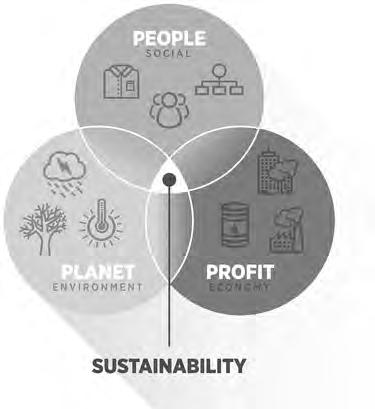ADVANCED READING AND USE OF ENGLISH
PART 7
Business and consumers Exam task 1
You are going to read a magazine article about green businesses. Six paragraphs have been removed from the article. Choose from the paragraphs A–G the one which fits each gap (1–6). There is one extra paragraph which you do not need to use.
Making profits from sustainable industry
sa l
e
business with a ‘social conscience’ as ‘unadulterated socialism’. In the following years, the notion that sustainability, or social good generally, and profit are fundamentally opposing forces hardened into fact in the minds of most business leaders. 3
ot f
or
For years, the conventional wisdom had been that sustainability is likely to lose a company money. Many still think that, at best, it’s a strategy to reduce costs, through things like energy and water efficiency. 4
-N
This phenomenon is also evident in companies which have diversified to produce sustainable as well as conventional brands. Many businesses, perhaps sensing a change in people’s attitudes, now market environmentally-friendly products alongside their more well-established cousins. The greener products are outselling their more traditional equivalents. 5
Green companies have succeeded in doing what few thought possible – making sustainability profitable.
Sa
m
pl
e
Over the nine years I’ve spent trying to persuade business leaders to embrace sustainability, the question I’ve most often been asked is, ‘What’s the business case for sustainability?’ This question is always delivered in a sceptical tone, carrying the unspoken suggestion that there is no business case, or at least not a very compelling one. And, for those nine years, I’d always wished I had a better answer. 1 These so-called green giants – which include electric car maker Tesla – manufacture a stunning array of goods, including burritos and beauty cream, sports shoes and organic baby food. In the process, they have succeeded in doing what the market long thought impossible: they’ve made sustainability profitable. 2 Despite this, it’s not hard to see why so many people are surprised by the idea that a sustainable business could be profitable. In his 1970 essay, ‘The Social Responsibility of Business is to Increase its Profits’, American economist Milton Friedman dismissed any
42
ADVANCED READING AND USE OF ENGLISH | PART 7 | 1
Such a demonstration of acceptance by the capitalist establishment is profoundly important. It represents a fundamental shift and evidence that this sector of the market has long-term viability. For the green giants, sustainability is not about how they save money, but about how they make it. No longer are sustainability and profit at odds; on the contrary, rather than being a drag on profit, sustainability can drive it. In many companies, sustainability is a department, but for the green giants, it’s a value that is fully integrated into how their business is organised. 6 Together, the green giants have proven that businesses based on sustainability and social good are an extremely viable alternative to business as usual. With global climate change being taken increasingly seriously in many places around the world, close your eyes, and the pace of change will have only accelerated by the time you open them again. Ignore the green giants’ example at your peril.
1













